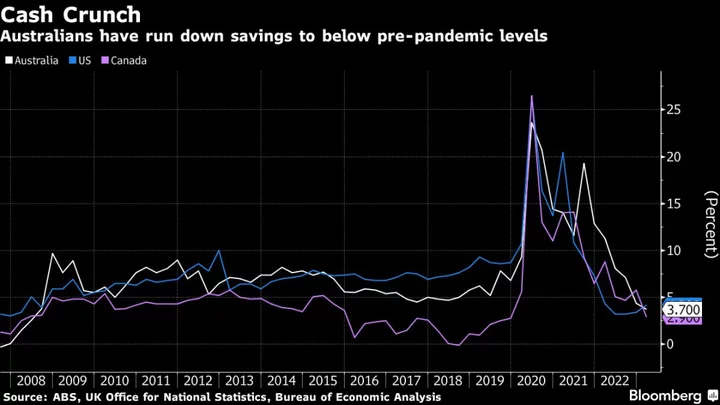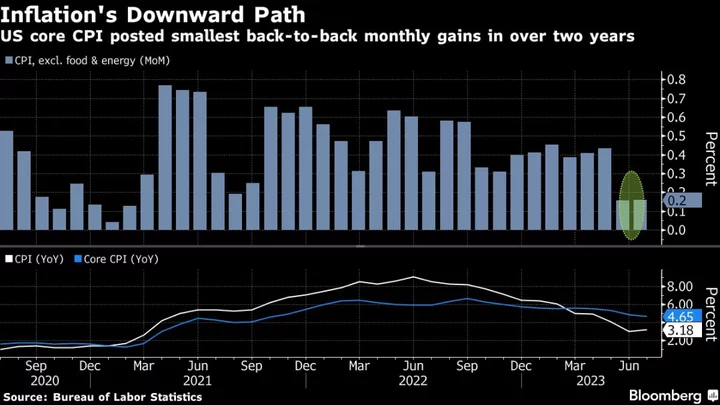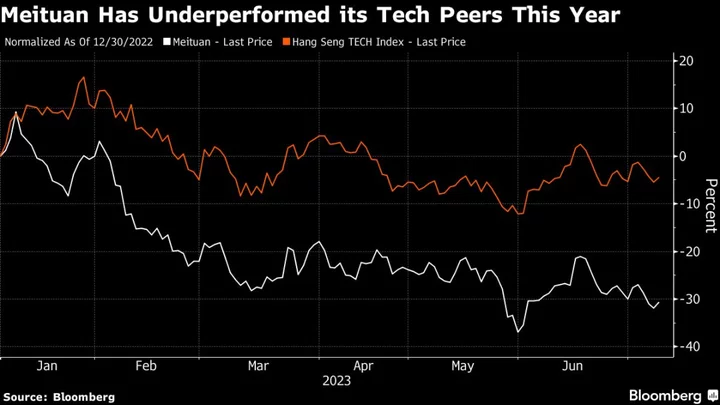Australia’s business conditions showed ongoing resilience in June, defying the Reserve Bank’s more than yearlong tightening cycle and warnings of slower economic growth, while consumer confidence remained in “deeply pessimistic” territory.
Business conditions, which measure sales, employment and profitability, were steady at 9 points and held above their average since the start of the year, a National Australia Bank Ltd. survey showed Tuesday. Confidence rose 3 points to zero, implying pessimists and optimists are evenly matched.
“We continue to see warning signs in the survey about the outlook for growth but as of June firms were yet to see a real deterioration,” said NAB Chief Economist Alan Oster. “Overall, the survey suggests the economy remained resilient and price pressures continued through the end of the second quarter.”
Separate figures from a Westpac Banking Corp. survey also out on Tuesday showed consumer sentiment rose 2.7% to 81.3 points, meaning pessimists still heavily outnumber optimists. The index plunged 17% over the first half of 2022 and has barely budged since then, holding in a 78-86 range, Westpac said.
The two data sets show a diverging trend between consumer and business sentiment. Still, a decline in leading indicators such as forward orders and capacity utilization suggests the outlook is increasingly clouded for firms.
Forward orders rose to minus-2 in a sign that activity may soften over the period ahead, while capacity utilization declined to 83.5%. Labor cost growth rose 2.6% in quarterly equivalent terms, up from 2% in May.
Westpac Chief Economist Bill Evans said the survey responses “suggest consumers are still clearly very nervous about the outlook for interest rates, particularly with the previous pause in April having been a ‘false dawn’.”
“The key message is that sentiment is probably not going to stage a sustained lift from current deeply pessimistic levels until inflation is much lower and interest rates are firmly on hold,” he said.
Evans pointed to surging living costs and sharply higher interest rates among the main drags on sentiment over the past year. “Our research suggests inflation has been the more dominant factor.”
The poll was conducted between July 3-6, covering the RBA’s July 4 meeting when it left the cash rate unchanged at 4.1%.
The report showed assessments of “family finances compared to a year ago” fell 4.9% to 62.2, led by consumers on lower incomes and renters. The “family finances next 12 months” sub-index jumped 6.8% to 89.7, Westpac said.
A gauge of the outlook for household spending, “the time to buy a major household item” sub-index rose 3.1% at 78.8, while still holding around historically weak levels.
The Westpac-Melbourne Institute Unemployment Expectations Index continued to point to a loss of confidence around jobs. The index is up 32% since the RBA’s tightening cycle began in May last year, implying more Australians expect the jobless rate will rise in the year ahead.
Australia’s property market persisted in defying gravity. The House Price Expectations Index lifted by 1.8% to 149.3. “Consumer expectations for house prices continue to lift,” Evans said.









